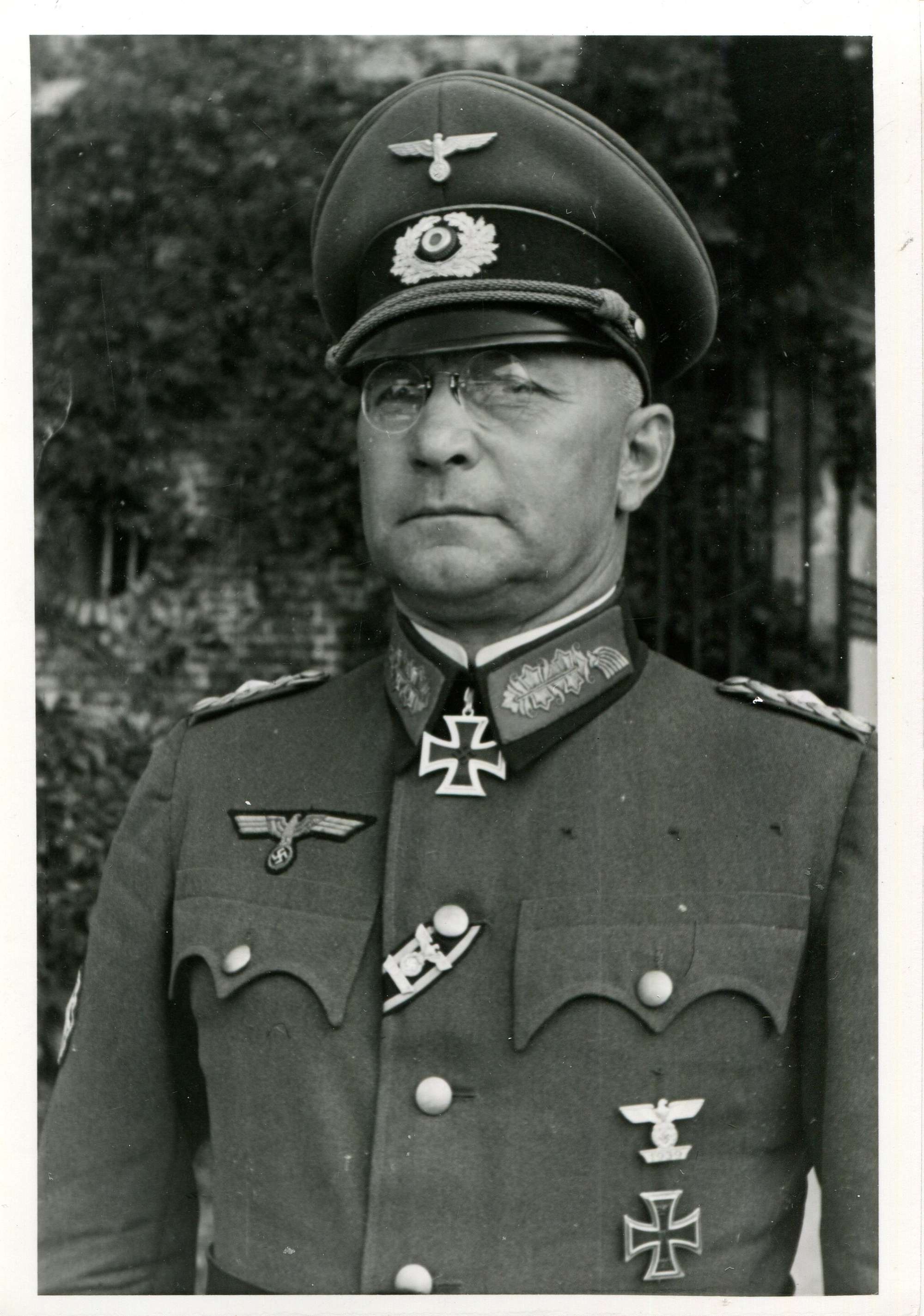
Franz Böhme(born April 15, 1885 in Zeltweg, - 29 May 1947 in Nuremberg) was an Austrian officer and General of the mountain troops in the German army. During World War II, he served as representative Commanding General in Serbia, responsible for massacres of the civilian population.
Franz Böhme Life
Franz Boehme lost in the age of 17 in 1902, his father, his mother, two years later. After school, he joined on 14 August 1904 as an ensign in the Imperial 95, an infantry regiment. He completed a career as an officer in the Imperial Army (1905 lieutenant, 1914 Lieutenant, 1915 Captain). During World War, Boehme was used from 1914 to 1916 in Galicia, 1917 in Volhynia, Kurland, and Dvinsk, and 1917/18, finally on the Isonzo front. Among others, he was the Karl I. Truppenkreuz, who also received the German Iron Cross Award and Second Class.
After the war, Böhme was incorporated into the Austrian army, in which he served primarily in general staff positions. From 1935 to 1938, Boehme was a major general of the Executive Intelligence in the Austrian army. In the Berchtesgaden agreement dated 12 February 1938, Boehme was appointed as the successor of the General Staff Field Marshal Lieutenant Alfred Jansa, who had come in for a defense of a German attack on Austria. On 17 February, it took place in exchange.
After the annexation of Austria into the Third Reich, Boehme was temporarily without a command before he was transferred in November 1938 as a location for elder Brandenburg. From July 1939 to June 1940, he was commander of the 32nd Infantry Division, with which he took part in the Polish and French campaigns of the German Wehrmacht. Here he received the Knight’s Cross.
The prestigious award followed on 1 August 1940 Promoted to General of Infantry. In autumn 1940, Böhme was appointed commanding general of the XVIII. Gebirgskorps appointed, which was used in early 1941 in the Balkan campaign. From 16 September to 2 December 1941, he was represented by the Commanding General in Serbia.
Adolf Hitler commissioned Böhme “in the long run in the entire region with the strongest measures to restore order.” Boehme ordered that immediately “all communists, such as arrest suspicious male inhabitants, all Jews, a certain number of nationalist and democratic-minded citizens hostage.” You should be shot for each dead and 1:50 for each wounded by the firing squad of the Wehrmacht in the Wehrmacht losses 1:100. Based on this command, the army shot Serbs, Serbian Jews, and Gypsies.
In the cities of Kraljevo and Kragujevac, the 717 units of the Infantry Division, after fierce artillery battles with Chetniks and Partisans, killed within a few days more than 4000 inhabitants (massacre of Kraljevo and Kragujevac). After only two months' stay, Boehme as agent Commanding General in Serbia in December 1941 resulted in the following conclusion - 160 were killed and 278 wounded. Wehrmacht officially over 3562 in the battle fell partisans and shot 20,000 to 30,000 civilians.
From May 1942 to December 1943, he commanded Boehme his corps on the Arctic front, before being displaced as a military district commander in Salzburg. On 23 March 1944, he changed his rank in the general mountain troops, and in June 1944, he was with the leadership of the 2nd Instructs Panzer Army in Yugoslavia; however, he breached a few weeks later in a plane crash. From January 1945 until the end of the war, he was Wehrmacht in Norway and commander of the 20th Mountain Army.
In May 1945, Böhme ran into Norway in British captivity. In 1946, he was in the POW camp 198 at Bridgend in South Wales and was on 13 May 1947 accused in the Nuremberg process hostage. Before the end of the process (to be extradited to Yugoslavia threatened), he took on 29 May 1947 by jumping from the fourth floor of the prison cell in Nuremberg life. He is buried in the cemetery of St. Leonhard in Graz.
Franz Böhme Bibliography
- Walter Manoschek - Serbia’s Jews. Military occupation and extermination of Jews in Serbia 1941/42 2. Edition. Series of the Military History Research Office. Munich 1995th.
- Person in World War I (Austria-Hungary)
- Military Person (First Republic of Austria)
- Defendant at the Nuremberg trials
- Military person (Wehrmacht Heer)
- Winner of the Knight’s Cross of the Iron Cross
- Support of the German Cross in Gold
- Person (Serbian history)
- Person (German occupation of Yugoslavia 1941-1945)
- Person (German occupation of Norway, 1940-1945)